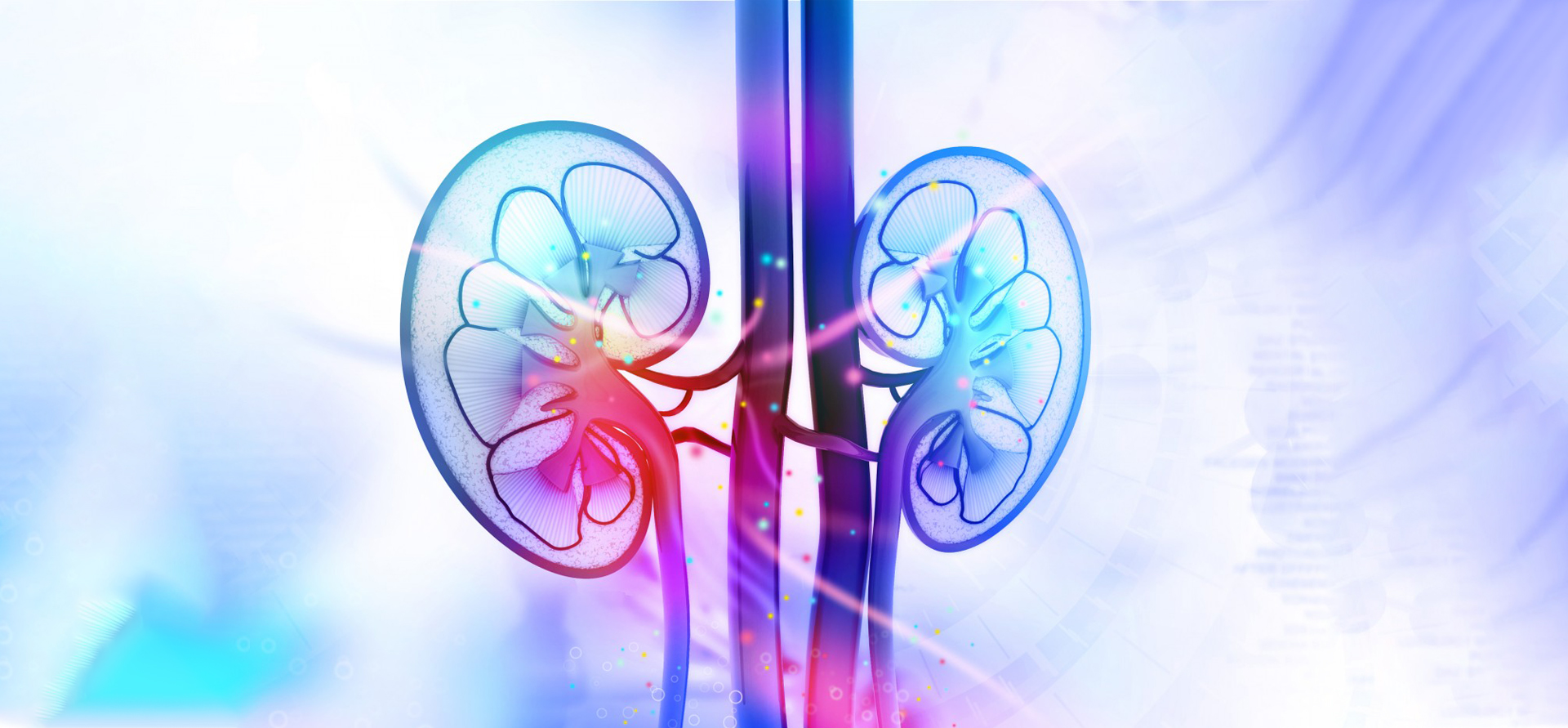KIDNEY HEALTH

HOW KIDNEYS WORK
The kidneys are two bean-shaped organs, each about the size of a fist. They are located just below the rib cage, one on each side of the spine. Every day, the two kidneys filter about 120 to 150 quarts of blood to produce about 1 to 2 quarts of urine, composed of wastes and extra fluid. The urine flows from the kidneys to the bladder through two thin tubes of muscle called ureters, one on each side of the bladder. The bladder stores urine. The muscles of the bladder wall remain relaxed while the bladder fills with urine. As the bladder fills to capacity, signals sent to the brain tell a person to find a toilet soon. When the bladder empties, urine flows out of the body through a tube called the urethra, located at the bottom of the bladder.
The kidneys are important because they keep the composition, or makeup, of the blood stable, which lets the body function.
They prevent the buildup of wastes and extra fluid in the body and keep levels of electrolytes stable, such as sodium, potassium, and phosphate. The kidneys make hormones that help regulate blood pressure, make red blood cells, and keep bones strong.
DIET
Maintaining a balanced diet is important when managing kidney disease.
There are certain aspects of your diet you should keep in mind. Limit consumption of sodium, potassium, phosphorus, and protein. While some of these ingredients are considered healthy, damaged kidneys cannot filter them out of the blood.
As part of your compassionate care team, your dietitian will be able to walk your through how to manage you diet while on dialysis.
EXERCISE
Physical activity is an important part of staying healthy when you have kidney failure.
Being active makes your muscles, bones, and heart stronger. Physical activity also makes your blood circulate faster so your body gets more oxygen. Your body needs oxygen to use the energy from food. If you are on dialysis, physical activity can help more wastes move into your blood for dialysis to remove them. You will find that physical activity can also improve your mood and give you a sense of well-being. Talk with your doctor before you start an exercise routine. Start slow, with easier activities such as walking at a normal pace or gardening. Work up to harder activities such as walking briskly or swimming. Aim for at least 30 minutes of exercise most days of the week.
TREATMENT OPTIONS
Liberty Home Dialysis provides staff-assisted, home hemodialysis. While that is our focus, many
of our patients are on a waiting list for a kidney transplant, and several have received their new
kidney and no longer require dialysis.
Our physicians and care team have excellent resources for those who are interested in and qualify for
a kidney transplant.